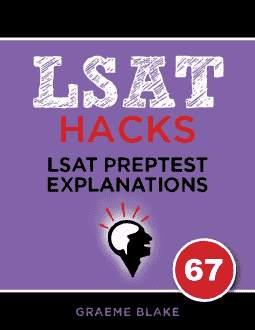QUESTION TEXT: When a patient failed to respond to prescribed…
QUESTION TYPE: Method of Reasoning
FACTS: When the patient took herbal tea, neither the original dose nor double the dose worked.
When the patient stopped taking herbal tea, the original dose was ineffective but double the original dose worked.
ANALYSIS: This is a very tricky question. It’s important to have a firm grasp on what happened.
The medicine was effective, but only at double the initial dose, and only when the patient didn’t drink herbal tea.
So the doctor proved two things: The herbal tea interfered, and the original dose wasn’t enough.
The question stem asks about the second set of experiments. These proved that herbal tea wasn’t the only problem.
___________
- The doctor didn’t say the drink was unhealthy. He just said thought that it interfered with the medicine. It might have other, beneficial effects.
- The opposite of this is true. The medicine only worked when the patient stopped drinking the beverage. The beverage almost certainly contributed to the medicine’s initial ineffectiveness.
- This is really tempting. But D is a better choice. First, the beverage wasn’t wholly responsible for the failure of the prescribed medication (the initial dosage). The initial dosage failed even when the patient stopped taking the drink.
So while the beverage seems to have contributed to the failure, we can’t say that it’s responsible. It’s possible the failure was 90% dosage problems and 10% beverage side effects. - CORRECT. This is true. Even without the beverage, the original prescribed dosage didn’t work. So inadequate dosage was also a cause.
- No other medication is mentioned, and the original medication worked once the dosage was increased.


C would be far less tempting, if one looks at the first few lines: “The doctor hypothesized that the dosage was insufficient”. D clearly tell us that there were other reasons other than the beverage – dosage – which affected the effectiveness.